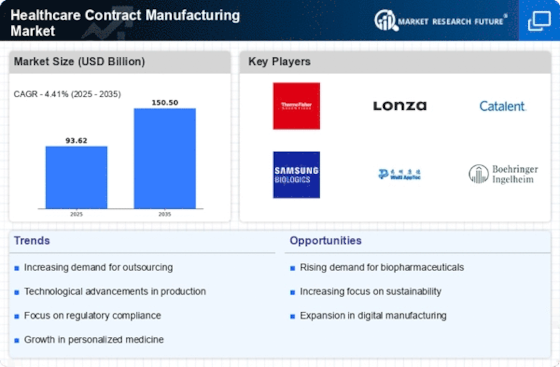-
EXECUTIVE SUMMARY
-
1.1.
-
Market Overview
-
Key Findings
-
Market Segmentation
-
1.4.
-
Competitive Landscape
-
Challenges and Opportunities
-
Future
-
Outlook
-
\r\n
-
MARKET INTRODUCTION
-
Definition
- Research Objective
- Assumption
-
2.2.
-
Scope of the study
-
2.2.3.
-
Limitations
-
RESEARCH METHODOLOGY
-
Overview
-
Data Mining
-
Secondary Research
-
Primary Research
- Primary Interviews
- Breakdown of Primary Respondents
-
and Information Gathering Process
-
Forecasting Model
-
Market Size Estimation
- Bottom-Up
- Top-Down Approach
-
Approach
-
Data Triangulation
-
3.8.
-
Validation
-
\r\n
-
MARKET DYNAMICS
-
Overview
-
4.2.
-
Drivers
-
Restraints
-
Opportunities
-
MARKET FACTOR ANALYSIS
-
Value chain Analysis
-
Porter's Five Forces Analysis
- Bargaining Power of Buyers
- Threat of Substitutes
- Intensity
-
5.2.1.
-
Bargaining Power of Suppliers
-
5.2.3.
-
Threat of New Entrants
-
of Rivalry
-
COVID-19 Impact Analysis
- Market Impact Analysis
- Regional Impact
- Opportunity and Threat Analysis
-
\r\n
-
HEALTHCARE CONTRACT MANUFACTURING MARKET, BY SERVICE TYPE (USD BILLION)
-
Contract Manufacturing
-
Contract Packing
-
Contract
-
Development
-
HEALTHCARE CONTRACT MANUFACTURING MARKET, BY PRODUCT TYPE (USD
-
BILLION)
-
Pharmaceuticals
-
Biologics
-
Medical Devices
-
Nutraceuticals
-
HEALTHCARE CONTRACT MANUFACTURING MARKET, BY
-
END USER (USD BILLION)
-
Pharmaceutical Companies
-
Biotechnology
-
Firms
-
Medical Device Companies
-
Research Institutions
-
9.
-
HEALTHCARE CONTRACT MANUFACTURING MARKET, BY PROCESS TYPE (USD BILLION)
-
9.1.
-
Formulation Development
-
Packaging Solutions
-
Manufacturing
-
Services
-
HEALTHCARE CONTRACT MANUFACTURING MARKET, BY REGIONAL (USD BILLION)
-
North America
- US
- Canada
-
Europe
- Germany
- UK
- France
- Russia
- Italy
- Spain
- Rest of Europe
- China
- India
- Japan
- South
- Malaysia
- Thailand
- Indonesia
- Rest of APAC
-
10.3.
-
APAC
-
Korea
-
South America
- Brazil
- Argentina
- Rest of South America
-
10.4.2.
-
Mexico
-
MEA
- GCC Countries
- South Africa
- Rest of MEA
-
\r\n
-
COMPETITIVE LANDSCAPE
-
Overview
-
Competitive Analysis
-
Market share Analysis
-
Major Growth Strategy in the Healthcare
-
Contract Manufacturing Market
-
Competitive Benchmarking
-
Leading
-
Players in Terms of Number of Developments in the Healthcare Contract Manufacturing
-
Market
-
Key developments and growth strategies
- New Product
- Merger & Acquisitions
-
Launch/Service Deployment
-
11.7.3.
-
Joint Ventures
-
Major Players Financial Matrix
- Sales and
- Major Players R&D Expenditure. 2023
-
Operating Income
-
12.
-
COMPANY PROFILES
-
Singota Solutions
- Financial Overview
- Products Offered
- Key Developments
- SWOT
- Key Strategies
-
Analysis
-
Cambrex
- Financial
- Products Offered
- Key Developments
- Key Strategies
-
Overview
-
12.2.4.
-
SWOT Analysis
-
Thermo Fisher Scientific
- Financial Overview
- Products Offered
- Key
- SWOT Analysis
- Key Strategies
- Financial Overview
- Products Offered
- Key Developments
- SWOT Analysis
- Key Strategies
-
Developments
-
12.4.
-
Alcami Corporation
-
Aenova
- Financial Overview
- Products Offered
- Key Developments
- SWOT Analysis
- Key Strategies
-
AMRI
- Financial Overview
- Products Offered
- Key Developments
- SWOT Analysis
- Key Strategies
-
Vetter Pharma
- Financial Overview
- Products
- Key Developments
- SWOT Analysis
-
Offered
-
12.7.5.
-
Key Strategies
-
Siegfried Holding
- Financial Overview
- Products Offered
- Key Developments
- SWOT Analysis
- Key Strategies
-
Catalent
- Financial Overview
- Products Offered
- Key Developments
- SWOT
- Key Strategies
-
Analysis
-
PCI Pharma Services
- Products Offered
- Key Developments
- SWOT Analysis
- Key Strategies
-
12.10.1.
-
Financial Overview
-
Lonza Group
- Financial Overview
- Products Offered
- SWOT Analysis
- Key Strategies
-
12.11.3.
-
Key Developments
-
Baxter International
- Financial Overview
- Products
- Key Developments
- SWOT Analysis
-
Offered
-
12.12.5.
-
Key Strategies
-
Recipharm
- Financial Overview
- Key Developments
- SWOT Analysis
- Key Strategies
-
12.13.2.
-
Products Offered
-
WuXi AppTec
- Financial Overview
- Products Offered
- Key Developments
- SWOT
- Key Strategies
-
Analysis
-
Fresenius Kabi
- Products Offered
- Key Developments
- SWOT Analysis
- Key Strategies
-
12.15.1.
-
Financial Overview
-
APPENDIX
-
References
-
Related Reports
-
LIST OF TABLES
-
\r\nTABLE
-
LIST OF ASSUMPTIONS
-
NORTH AMERICA HEALTHCARE CONTRACT MANUFACTURING
-
MARKET SIZE ESTIMATES & FORECAST, BY SERVICE TYPE, 2019-2035 (USD BILLIONS)
-
NORTH AMERICA HEALTHCARE CONTRACT MANUFACTURING MARKET SIZE ESTIMATES
-
& FORECAST, BY PRODUCT TYPE, 2019-2035 (USD BILLIONS)
-
NORTH AMERICA
-
HEALTHCARE CONTRACT MANUFACTURING MARKET SIZE ESTIMATES & FORECAST, BY END USER,
-
NORTH AMERICA HEALTHCARE CONTRACT MANUFACTURING
-
MARKET SIZE ESTIMATES & FORECAST, BY PROCESS TYPE, 2019-2035 (USD BILLIONS)
-
NORTH AMERICA HEALTHCARE CONTRACT MANUFACTURING MARKET SIZE ESTIMATES
-
& FORECAST, BY REGIONAL, 2019-2035 (USD BILLIONS)
-
US HEALTHCARE
-
CONTRACT MANUFACTURING MARKET SIZE ESTIMATES & FORECAST, BY SERVICE TYPE, 2019-2035
-
(USD BILLIONS)
-
US HEALTHCARE CONTRACT MANUFACTURING MARKET SIZE ESTIMATES
-
& FORECAST, BY PRODUCT TYPE, 2019-2035 (USD BILLIONS)
-
US HEALTHCARE
-
CONTRACT MANUFACTURING MARKET SIZE ESTIMATES & FORECAST, BY END USER, 2019-2035
-
(USD BILLIONS)
-
US HEALTHCARE CONTRACT MANUFACTURING MARKET SIZE
-
ESTIMATES & FORECAST, BY PROCESS TYPE, 2019-2035 (USD BILLIONS)
-
TABLE
-
US HEALTHCARE CONTRACT MANUFACTURING MARKET SIZE ESTIMATES & FORECAST, BY
-
REGIONAL, 2019-2035 (USD BILLIONS)
-
CANADA HEALTHCARE CONTRACT MANUFACTURING
-
MARKET SIZE ESTIMATES & FORECAST, BY SERVICE TYPE, 2019-2035 (USD BILLIONS)
-
CANADA HEALTHCARE CONTRACT MANUFACTURING MARKET SIZE ESTIMATES &
-
FORECAST, BY PRODUCT TYPE, 2019-2035 (USD BILLIONS)
-
CANADA HEALTHCARE
-
CONTRACT MANUFACTURING MARKET SIZE ESTIMATES & FORECAST, BY END USER, 2019-2035
-
(USD BILLIONS)
-
CANADA HEALTHCARE CONTRACT MANUFACTURING MARKET SIZE
-
ESTIMATES & FORECAST, BY PROCESS TYPE, 2019-2035 (USD BILLIONS)
-
TABLE
-
CANADA HEALTHCARE CONTRACT MANUFACTURING MARKET SIZE ESTIMATES & FORECAST,
-
BY REGIONAL, 2019-2035 (USD BILLIONS)
-
EUROPE HEALTHCARE CONTRACT
-
MANUFACTURING MARKET SIZE ESTIMATES & FORECAST, BY SERVICE TYPE, 2019-2035 (USD
-
BILLIONS)
-
EUROPE HEALTHCARE CONTRACT MANUFACTURING MARKET SIZE ESTIMATES
-
& FORECAST, BY PRODUCT TYPE, 2019-2035 (USD BILLIONS)
-
EUROPE
-
HEALTHCARE CONTRACT MANUFACTURING MARKET SIZE ESTIMATES & FORECAST, BY END USER,
-
EUROPE HEALTHCARE CONTRACT MANUFACTURING
-
MARKET SIZE ESTIMATES & FORECAST, BY PROCESS TYPE, 2019-2035 (USD BILLIONS)
-
EUROPE HEALTHCARE CONTRACT MANUFACTURING MARKET SIZE ESTIMATES &
-
FORECAST, BY REGIONAL, 2019-2035 (USD BILLIONS)
-
GERMANY HEALTHCARE
-
CONTRACT MANUFACTURING MARKET SIZE ESTIMATES & FORECAST, BY SERVICE TYPE, 2019-2035
-
(USD BILLIONS)
-
GERMANY HEALTHCARE CONTRACT MANUFACTURING MARKET
-
SIZE ESTIMATES & FORECAST, BY PRODUCT TYPE, 2019-2035 (USD BILLIONS)
-
TABLE
-
GERMANY HEALTHCARE CONTRACT MANUFACTURING MARKET SIZE ESTIMATES & FORECAST,
-
BY END USER, 2019-2035 (USD BILLIONS)
-
GERMANY HEALTHCARE CONTRACT
-
MANUFACTURING MARKET SIZE ESTIMATES & FORECAST, BY PROCESS TYPE, 2019-2035 (USD
-
BILLIONS)
-
GERMANY HEALTHCARE CONTRACT MANUFACTURING MARKET SIZE
-
ESTIMATES & FORECAST, BY REGIONAL, 2019-2035 (USD BILLIONS)
-
TABLE 27.
-
UK HEALTHCARE CONTRACT MANUFACTURING MARKET SIZE ESTIMATES & FORECAST, BY SERVICE
-
TYPE, 2019-2035 (USD BILLIONS)
-
UK HEALTHCARE CONTRACT MANUFACTURING
-
MARKET SIZE ESTIMATES & FORECAST, BY PRODUCT TYPE, 2019-2035 (USD BILLIONS)
-
UK HEALTHCARE CONTRACT MANUFACTURING MARKET SIZE ESTIMATES &
-
FORECAST, BY END USER, 2019-2035 (USD BILLIONS)
-
UK HEALTHCARE CONTRACT
-
MANUFACTURING MARKET SIZE ESTIMATES & FORECAST, BY PROCESS TYPE, 2019-2035 (USD
-
BILLIONS)
-
UK HEALTHCARE CONTRACT MANUFACTURING MARKET SIZE ESTIMATES
-
& FORECAST, BY REGIONAL, 2019-2035 (USD BILLIONS)
-
FRANCE HEALTHCARE
-
CONTRACT MANUFACTURING MARKET SIZE ESTIMATES & FORECAST, BY SERVICE TYPE, 2019-2035
-
(USD BILLIONS)
-
FRANCE HEALTHCARE CONTRACT MANUFACTURING MARKET SIZE
-
ESTIMATES & FORECAST, BY PRODUCT TYPE, 2019-2035 (USD BILLIONS)
-
TABLE
-
FRANCE HEALTHCARE CONTRACT MANUFACTURING MARKET SIZE ESTIMATES & FORECAST,
-
BY END USER, 2019-2035 (USD BILLIONS)
-
FRANCE HEALTHCARE CONTRACT
-
MANUFACTURING MARKET SIZE ESTIMATES & FORECAST, BY PROCESS TYPE, 2019-2035 (USD
-
BILLIONS)
-
FRANCE HEALTHCARE CONTRACT MANUFACTURING MARKET SIZE ESTIMATES
-
& FORECAST, BY REGIONAL, 2019-2035 (USD BILLIONS)
-
RUSSIA HEALTHCARE
-
CONTRACT MANUFACTURING MARKET SIZE ESTIMATES & FORECAST, BY SERVICE TYPE, 2019-2035
-
(USD BILLIONS)
-
RUSSIA HEALTHCARE CONTRACT MANUFACTURING MARKET SIZE
-
ESTIMATES & FORECAST, BY PRODUCT TYPE, 2019-2035 (USD BILLIONS)
-
TABLE
-
RUSSIA HEALTHCARE CONTRACT MANUFACTURING MARKET SIZE ESTIMATES & FORECAST,
-
BY END USER, 2019-2035 (USD BILLIONS)
-
RUSSIA HEALTHCARE CONTRACT
-
MANUFACTURING MARKET SIZE ESTIMATES & FORECAST, BY PROCESS TYPE, 2019-2035 (USD
-
BILLIONS)
-
RUSSIA HEALTHCARE CONTRACT MANUFACTURING MARKET SIZE ESTIMATES
-
& FORECAST, BY REGIONAL, 2019-2035 (USD BILLIONS)
-
ITALY HEALTHCARE
-
CONTRACT MANUFACTURING MARKET SIZE ESTIMATES & FORECAST, BY SERVICE TYPE, 2019-2035
-
(USD BILLIONS)
-
ITALY HEALTHCARE CONTRACT MANUFACTURING MARKET SIZE
-
ESTIMATES & FORECAST, BY PRODUCT TYPE, 2019-2035 (USD BILLIONS)
-
TABLE
-
ITALY HEALTHCARE CONTRACT MANUFACTURING MARKET SIZE ESTIMATES & FORECAST,
-
BY END USER, 2019-2035 (USD BILLIONS)
-
ITALY HEALTHCARE CONTRACT
-
MANUFACTURING MARKET SIZE ESTIMATES & FORECAST, BY PROCESS TYPE, 2019-2035 (USD
-
BILLIONS)
-
ITALY HEALTHCARE CONTRACT MANUFACTURING MARKET SIZE ESTIMATES
-
& FORECAST, BY REGIONAL, 2019-2035 (USD BILLIONS)
-
SPAIN HEALTHCARE
-
CONTRACT MANUFACTURING MARKET SIZE ESTIMATES & FORECAST, BY SERVICE TYPE, 2019-2035
-
(USD BILLIONS)
-
SPAIN HEALTHCARE CONTRACT MANUFACTURING MARKET SIZE
-
ESTIMATES & FORECAST, BY PRODUCT TYPE, 2019-2035 (USD BILLIONS)
-
TABLE
-
SPAIN HEALTHCARE CONTRACT MANUFACTURING MARKET SIZE ESTIMATES & FORECAST,
-
BY END USER, 2019-2035 (USD BILLIONS)
-
SPAIN HEALTHCARE CONTRACT
-
MANUFACTURING MARKET SIZE ESTIMATES & FORECAST, BY PROCESS TYPE, 2019-2035 (USD
-
BILLIONS)
-
SPAIN HEALTHCARE CONTRACT MANUFACTURING MARKET SIZE ESTIMATES
-
& FORECAST, BY REGIONAL, 2019-2035 (USD BILLIONS)
-
REST OF EUROPE
-
HEALTHCARE CONTRACT MANUFACTURING MARKET SIZE ESTIMATES & FORECAST, BY SERVICE
-
TYPE, 2019-2035 (USD BILLIONS)
-
REST OF EUROPE HEALTHCARE CONTRACT
-
MANUFACTURING MARKET SIZE ESTIMATES & FORECAST, BY PRODUCT TYPE, 2019-2035 (USD
-
BILLIONS)
-
REST OF EUROPE HEALTHCARE CONTRACT MANUFACTURING MARKET
-
SIZE ESTIMATES & FORECAST, BY END USER, 2019-2035 (USD BILLIONS)
-
TABLE
-
REST OF EUROPE HEALTHCARE CONTRACT MANUFACTURING MARKET SIZE ESTIMATES &
-
FORECAST, BY PROCESS TYPE, 2019-2035 (USD BILLIONS)
-
REST OF EUROPE
-
HEALTHCARE CONTRACT MANUFACTURING MARKET SIZE ESTIMATES & FORECAST, BY REGIONAL,
-
APAC HEALTHCARE CONTRACT MANUFACTURING
-
MARKET SIZE ESTIMATES & FORECAST, BY SERVICE TYPE, 2019-2035 (USD BILLIONS)
-
APAC HEALTHCARE CONTRACT MANUFACTURING MARKET SIZE ESTIMATES &
-
FORECAST, BY PRODUCT TYPE, 2019-2035 (USD BILLIONS)
-
APAC HEALTHCARE
-
CONTRACT MANUFACTURING MARKET SIZE ESTIMATES & FORECAST, BY END USER, 2019-2035
-
(USD BILLIONS)
-
APAC HEALTHCARE CONTRACT MANUFACTURING MARKET SIZE
-
ESTIMATES & FORECAST, BY PROCESS TYPE, 2019-2035 (USD BILLIONS)
-
TABLE
-
APAC HEALTHCARE CONTRACT MANUFACTURING MARKET SIZE ESTIMATES & FORECAST,
-
BY REGIONAL, 2019-2035 (USD BILLIONS)
-
CHINA HEALTHCARE CONTRACT
-
MANUFACTURING MARKET SIZE ESTIMATES & FORECAST, BY SERVICE TYPE, 2019-2035 (USD
-
BILLIONS)
-
CHINA HEALTHCARE CONTRACT MANUFACTURING MARKET SIZE ESTIMATES
-
& FORECAST, BY PRODUCT TYPE, 2019-2035 (USD BILLIONS)
-
CHINA
-
HEALTHCARE CONTRACT MANUFACTURING MARKET SIZE ESTIMATES & FORECAST, BY END USER,
-
CHINA HEALTHCARE CONTRACT MANUFACTURING
-
MARKET SIZE ESTIMATES & FORECAST, BY PROCESS TYPE, 2019-2035 (USD BILLIONS)
-
CHINA HEALTHCARE CONTRACT MANUFACTURING MARKET SIZE ESTIMATES &
-
FORECAST, BY REGIONAL, 2019-2035 (USD BILLIONS)
-
INDIA HEALTHCARE
-
CONTRACT MANUFACTURING MARKET SIZE ESTIMATES & FORECAST, BY SERVICE TYPE, 2019-2035
-
(USD BILLIONS)
-
INDIA HEALTHCARE CONTRACT MANUFACTURING MARKET SIZE
-
ESTIMATES & FORECAST, BY PRODUCT TYPE, 2019-2035 (USD BILLIONS)
-
TABLE
-
INDIA HEALTHCARE CONTRACT MANUFACTURING MARKET SIZE ESTIMATES & FORECAST,
-
BY END USER, 2019-2035 (USD BILLIONS)
-
INDIA HEALTHCARE CONTRACT
-
MANUFACTURING MARKET SIZE ESTIMATES & FORECAST, BY PROCESS TYPE, 2019-2035 (USD
-
BILLIONS)
-
INDIA HEALTHCARE CONTRACT MANUFACTURING MARKET SIZE ESTIMATES
-
& FORECAST, BY REGIONAL, 2019-2035 (USD BILLIONS)
-
JAPAN HEALTHCARE
-
CONTRACT MANUFACTURING MARKET SIZE ESTIMATES & FORECAST, BY SERVICE TYPE, 2019-2035
-
(USD BILLIONS)
-
JAPAN HEALTHCARE CONTRACT MANUFACTURING MARKET SIZE
-
ESTIMATES & FORECAST, BY PRODUCT TYPE, 2019-2035 (USD BILLIONS)
-
TABLE
-
JAPAN HEALTHCARE CONTRACT MANUFACTURING MARKET SIZE ESTIMATES & FORECAST,
-
BY END USER, 2019-2035 (USD BILLIONS)
-
JAPAN HEALTHCARE CONTRACT
-
MANUFACTURING MARKET SIZE ESTIMATES & FORECAST, BY PROCESS TYPE, 2019-2035 (USD
-
BILLIONS)
-
JAPAN HEALTHCARE CONTRACT MANUFACTURING MARKET SIZE ESTIMATES
-
& FORECAST, BY REGIONAL, 2019-2035 (USD BILLIONS)
-
SOUTH KOREA
-
HEALTHCARE CONTRACT MANUFACTURING MARKET SIZE ESTIMATES & FORECAST, BY SERVICE
-
TYPE, 2019-2035 (USD BILLIONS)
-
SOUTH KOREA HEALTHCARE CONTRACT MANUFACTURING
-
MARKET SIZE ESTIMATES & FORECAST, BY PRODUCT TYPE, 2019-2035 (USD BILLIONS)
-
SOUTH KOREA HEALTHCARE CONTRACT MANUFACTURING MARKET SIZE ESTIMATES
-
& FORECAST, BY END USER, 2019-2035 (USD BILLIONS)
-
SOUTH KOREA
-
HEALTHCARE CONTRACT MANUFACTURING MARKET SIZE ESTIMATES & FORECAST, BY PROCESS
-
TYPE, 2019-2035 (USD BILLIONS)
-
SOUTH KOREA HEALTHCARE CONTRACT MANUFACTURING
-
MARKET SIZE ESTIMATES & FORECAST, BY REGIONAL, 2019-2035 (USD BILLIONS)
-
MALAYSIA HEALTHCARE CONTRACT MANUFACTURING MARKET SIZE ESTIMATES &
-
FORECAST, BY SERVICE TYPE, 2019-2035 (USD BILLIONS)
-
MALAYSIA HEALTHCARE
-
CONTRACT MANUFACTURING MARKET SIZE ESTIMATES & FORECAST, BY PRODUCT TYPE, 2019-2035
-
(USD BILLIONS)
-
MALAYSIA HEALTHCARE CONTRACT MANUFACTURING MARKET
-
SIZE ESTIMATES & FORECAST, BY END USER, 2019-2035 (USD BILLIONS)
-
TABLE
-
MALAYSIA HEALTHCARE CONTRACT MANUFACTURING MARKET SIZE ESTIMATES & FORECAST,
-
BY PROCESS TYPE, 2019-2035 (USD BILLIONS)
-
MALAYSIA HEALTHCARE CONTRACT
-
MANUFACTURING MARKET SIZE ESTIMATES & FORECAST, BY REGIONAL, 2019-2035 (USD
-
BILLIONS)
-
THAILAND HEALTHCARE CONTRACT MANUFACTURING MARKET SIZE
-
ESTIMATES & FORECAST, BY SERVICE TYPE, 2019-2035 (USD BILLIONS)
-
TABLE
-
THAILAND HEALTHCARE CONTRACT MANUFACTURING MARKET SIZE ESTIMATES & FORECAST,
-
BY PRODUCT TYPE, 2019-2035 (USD BILLIONS)
-
THAILAND HEALTHCARE CONTRACT
-
MANUFACTURING MARKET SIZE ESTIMATES & FORECAST, BY END USER, 2019-2035 (USD
-
BILLIONS)
-
THAILAND HEALTHCARE CONTRACT MANUFACTURING MARKET SIZE
-
ESTIMATES & FORECAST, BY PROCESS TYPE, 2019-2035 (USD BILLIONS)
-
TABLE
-
THAILAND HEALTHCARE CONTRACT MANUFACTURING MARKET SIZE ESTIMATES & FORECAST,
-
BY REGIONAL, 2019-2035 (USD BILLIONS)
-
INDONESIA HEALTHCARE CONTRACT
-
MANUFACTURING MARKET SIZE ESTIMATES & FORECAST, BY SERVICE TYPE, 2019-2035 (USD
-
BILLIONS)
-
INDONESIA HEALTHCARE CONTRACT MANUFACTURING MARKET SIZE
-
ESTIMATES & FORECAST, BY PRODUCT TYPE, 2019-2035 (USD BILLIONS)
-
TABLE
-
INDONESIA HEALTHCARE CONTRACT MANUFACTURING MARKET SIZE ESTIMATES & FORECAST,
-
BY END USER, 2019-2035 (USD BILLIONS)
-
INDONESIA HEALTHCARE CONTRACT
-
MANUFACTURING MARKET SIZE ESTIMATES & FORECAST, BY PROCESS TYPE, 2019-2035 (USD
-
BILLIONS)
-
INDONESIA HEALTHCARE CONTRACT MANUFACTURING MARKET SIZE
-
ESTIMATES & FORECAST, BY REGIONAL, 2019-2035 (USD BILLIONS)
-
TABLE 97.
-
REST OF APAC HEALTHCARE CONTRACT MANUFACTURING MARKET SIZE ESTIMATES & FORECAST,
-
BY SERVICE TYPE, 2019-2035 (USD BILLIONS)
-
REST OF APAC HEALTHCARE
-
CONTRACT MANUFACTURING MARKET SIZE ESTIMATES & FORECAST, BY PRODUCT TYPE, 2019-2035
-
(USD BILLIONS)
-
REST OF APAC HEALTHCARE CONTRACT MANUFACTURING MARKET
-
SIZE ESTIMATES & FORECAST, BY END USER, 2019-2035 (USD BILLIONS)
-
TABLE
-
REST OF APAC HEALTHCARE CONTRACT MANUFACTURING MARKET SIZE ESTIMATES &
-
FORECAST, BY PROCESS TYPE, 2019-2035 (USD BILLIONS)
-
REST OF APAC
-
HEALTHCARE CONTRACT MANUFACTURING MARKET SIZE ESTIMATES & FORECAST, BY REGIONAL,
-
SOUTH AMERICA HEALTHCARE CONTRACT MANUFACTURING
-
MARKET SIZE ESTIMATES & FORECAST, BY SERVICE TYPE, 2019-2035 (USD BILLIONS)
-
SOUTH AMERICA HEALTHCARE CONTRACT MANUFACTURING MARKET SIZE ESTIMATES
-
& FORECAST, BY PRODUCT TYPE, 2019-2035 (USD BILLIONS)
-
SOUTH
-
AMERICA HEALTHCARE CONTRACT MANUFACTURING MARKET SIZE ESTIMATES & FORECAST,
-
BY END USER, 2019-2035 (USD BILLIONS)
-
SOUTH AMERICA HEALTHCARE
-
CONTRACT MANUFACTURING MARKET SIZE ESTIMATES & FORECAST, BY PROCESS TYPE, 2019-2035
-
(USD BILLIONS)
-
SOUTH AMERICA HEALTHCARE CONTRACT MANUFACTURING
-
MARKET SIZE ESTIMATES & FORECAST, BY REGIONAL, 2019-2035 (USD BILLIONS)
-
BRAZIL HEALTHCARE CONTRACT MANUFACTURING MARKET SIZE ESTIMATES &
-
FORECAST, BY SERVICE TYPE, 2019-2035 (USD BILLIONS)
-
BRAZIL HEALTHCARE
-
CONTRACT MANUFACTURING MARKET SIZE ESTIMATES & FORECAST, BY PRODUCT TYPE, 2019-2035
-
(USD BILLIONS)
-
BRAZIL HEALTHCARE CONTRACT MANUFACTURING MARKET
-
SIZE ESTIMATES & FORECAST, BY END USER, 2019-2035 (USD BILLIONS)
-
TABLE
-
BRAZIL HEALTHCARE CONTRACT MANUFACTURING MARKET SIZE ESTIMATES & FORECAST,
-
BY PROCESS TYPE, 2019-2035 (USD BILLIONS)
-
BRAZIL HEALTHCARE CONTRACT
-
MANUFACTURING MARKET SIZE ESTIMATES & FORECAST, BY REGIONAL, 2019-2035 (USD
-
BILLIONS)
-
MEXICO HEALTHCARE CONTRACT MANUFACTURING MARKET SIZE
-
ESTIMATES & FORECAST, BY SERVICE TYPE, 2019-2035 (USD BILLIONS)
-
TABLE
-
MEXICO HEALTHCARE CONTRACT MANUFACTURING MARKET SIZE ESTIMATES & FORECAST,
-
BY PRODUCT TYPE, 2019-2035 (USD BILLIONS)
-
MEXICO HEALTHCARE CONTRACT
-
MANUFACTURING MARKET SIZE ESTIMATES & FORECAST, BY END USER, 2019-2035 (USD
-
BILLIONS)
-
MEXICO HEALTHCARE CONTRACT MANUFACTURING MARKET SIZE
-
ESTIMATES & FORECAST, BY PROCESS TYPE, 2019-2035 (USD BILLIONS)
-
TABLE
-
MEXICO HEALTHCARE CONTRACT MANUFACTURING MARKET SIZE ESTIMATES & FORECAST,
-
BY REGIONAL, 2019-2035 (USD BILLIONS)
-
ARGENTINA HEALTHCARE CONTRACT
-
MANUFACTURING MARKET SIZE ESTIMATES & FORECAST, BY SERVICE TYPE, 2019-2035 (USD
-
BILLIONS)
-
ARGENTINA HEALTHCARE CONTRACT MANUFACTURING MARKET SIZE
-
ESTIMATES & FORECAST, BY PRODUCT TYPE, 2019-2035 (USD BILLIONS)
-
TABLE
-
ARGENTINA HEALTHCARE CONTRACT MANUFACTURING MARKET SIZE ESTIMATES & FORECAST,
-
BY END USER, 2019-2035 (USD BILLIONS)
-
ARGENTINA HEALTHCARE CONTRACT
-
MANUFACTURING MARKET SIZE ESTIMATES & FORECAST, BY PROCESS TYPE, 2019-2035 (USD
-
BILLIONS)
-
ARGENTINA HEALTHCARE CONTRACT MANUFACTURING MARKET SIZE
-
ESTIMATES & FORECAST, BY REGIONAL, 2019-2035 (USD BILLIONS)
-
TABLE 122.
-
REST OF SOUTH AMERICA HEALTHCARE CONTRACT MANUFACTURING MARKET SIZE ESTIMATES &
-
FORECAST, BY SERVICE TYPE, 2019-2035 (USD BILLIONS)
-
REST OF SOUTH
-
AMERICA HEALTHCARE CONTRACT MANUFACTURING MARKET SIZE ESTIMATES & FORECAST,
-
BY PRODUCT TYPE, 2019-2035 (USD BILLIONS)
-
REST OF SOUTH AMERICA
-
HEALTHCARE CONTRACT MANUFACTURING MARKET SIZE ESTIMATES & FORECAST, BY END USER,
-
REST OF SOUTH AMERICA HEALTHCARE CONTRACT
-
MANUFACTURING MARKET SIZE ESTIMATES & FORECAST, BY PROCESS TYPE, 2019-2035 (USD
-
BILLIONS)
-
REST OF SOUTH AMERICA HEALTHCARE CONTRACT MANUFACTURING
-
MARKET SIZE ESTIMATES & FORECAST, BY REGIONAL, 2019-2035 (USD BILLIONS)
-
MEA HEALTHCARE CONTRACT MANUFACTURING MARKET SIZE ESTIMATES & FORECAST,
-
BY SERVICE TYPE, 2019-2035 (USD BILLIONS)
-
MEA HEALTHCARE CONTRACT
-
MANUFACTURING MARKET SIZE ESTIMATES & FORECAST, BY PRODUCT TYPE, 2019-2035 (USD
-
BILLIONS)
-
MEA HEALTHCARE CONTRACT MANUFACTURING MARKET SIZE ESTIMATES
-
& FORECAST, BY END USER, 2019-2035 (USD BILLIONS)
-
MEA HEALTHCARE
-
CONTRACT MANUFACTURING MARKET SIZE ESTIMATES & FORECAST, BY PROCESS TYPE, 2019-2035
-
(USD BILLIONS)
-
MEA HEALTHCARE CONTRACT MANUFACTURING MARKET SIZE
-
ESTIMATES & FORECAST, BY REGIONAL, 2019-2035 (USD BILLIONS)
-
TABLE 132.
-
GCC COUNTRIES HEALTHCARE CONTRACT MANUFACTURING MARKET SIZE ESTIMATES & FORECAST,
-
BY SERVICE TYPE, 2019-2035 (USD BILLIONS)
-
GCC COUNTRIES HEALTHCARE
-
CONTRACT MANUFACTURING MARKET SIZE ESTIMATES & FORECAST, BY PRODUCT TYPE, 2019-2035
-
(USD BILLIONS)
-
GCC COUNTRIES HEALTHCARE CONTRACT MANUFACTURING
-
MARKET SIZE ESTIMATES & FORECAST, BY END USER, 2019-2035 (USD BILLIONS)
-
GCC COUNTRIES HEALTHCARE CONTRACT MANUFACTURING MARKET SIZE ESTIMATES
-
& FORECAST, BY PROCESS TYPE, 2019-2035 (USD BILLIONS)
-
GCC COUNTRIES
-
HEALTHCARE CONTRACT MANUFACTURING MARKET SIZE ESTIMATES & FORECAST, BY REGIONAL,
-
SOUTH AFRICA HEALTHCARE CONTRACT MANUFACTURING
-
MARKET SIZE ESTIMATES & FORECAST, BY SERVICE TYPE, 2019-2035 (USD BILLIONS)
-
SOUTH AFRICA HEALTHCARE CONTRACT MANUFACTURING MARKET SIZE ESTIMATES
-
& FORECAST, BY PRODUCT TYPE, 2019-2035 (USD BILLIONS)
-
SOUTH
-
AFRICA HEALTHCARE CONTRACT MANUFACTURING MARKET SIZE ESTIMATES & FORECAST, BY
-
END USER, 2019-2035 (USD BILLIONS)
-
SOUTH AFRICA HEALTHCARE CONTRACT
-
MANUFACTURING MARKET SIZE ESTIMATES & FORECAST, BY PROCESS TYPE, 2019-2035 (USD
-
BILLIONS)
-
SOUTH AFRICA HEALTHCARE CONTRACT MANUFACTURING MARKET
-
SIZE ESTIMATES & FORECAST, BY REGIONAL, 2019-2035 (USD BILLIONS)
-
TABLE
-
REST OF MEA HEALTHCARE CONTRACT MANUFACTURING MARKET SIZE ESTIMATES & FORECAST,
-
BY SERVICE TYPE, 2019-2035 (USD BILLIONS)
-
REST OF MEA HEALTHCARE
-
CONTRACT MANUFACTURING MARKET SIZE ESTIMATES & FORECAST, BY PRODUCT TYPE, 2019-2035
-
(USD BILLIONS)
-
REST OF MEA HEALTHCARE CONTRACT MANUFACTURING MARKET
-
SIZE ESTIMATES & FORECAST, BY END USER, 2019-2035 (USD BILLIONS)
-
TABLE
-
REST OF MEA HEALTHCARE CONTRACT MANUFACTURING MARKET SIZE ESTIMATES & FORECAST,
-
BY PROCESS TYPE, 2019-2035 (USD BILLIONS)
-
REST OF MEA HEALTHCARE
-
CONTRACT MANUFACTURING MARKET SIZE ESTIMATES & FORECAST, BY REGIONAL, 2019-2035
-
(USD BILLIONS)
-
PRODUCT LAUNCH/PRODUCT DEVELOPMENT/APPROVAL
-
ACQUISITION/PARTNERSHIP
-
\r\n
-
\r\n
-
\r\n
-
\r\n
-
\r\n
-
\r\n
-
\r\n
-
\r\n
-
\r\n
-
\r\n
-
\r\n
-
\r\n
-
\r\n
-
\r\n
-
\r\nLIST
-
OF FIGURES
-
\r\nFIGURE 1. MARKET SYNOPSIS
-
NORTH AMERICA HEALTHCARE
-
CONTRACT MANUFACTURING MARKET ANALYSIS
-
US HEALTHCARE CONTRACT MANUFACTURING
-
MARKET ANALYSIS BY SERVICE TYPE
-
US HEALTHCARE CONTRACT MANUFACTURING
-
MARKET ANALYSIS BY PRODUCT TYPE
-
US HEALTHCARE CONTRACT MANUFACTURING
-
MARKET ANALYSIS BY END USER
-
US HEALTHCARE CONTRACT MANUFACTURING
-
MARKET ANALYSIS BY PROCESS TYPE
-
US HEALTHCARE CONTRACT MANUFACTURING
-
MARKET ANALYSIS BY REGIONAL
-
CANADA HEALTHCARE CONTRACT MANUFACTURING
-
MARKET ANALYSIS BY SERVICE TYPE
-
CANADA HEALTHCARE CONTRACT MANUFACTURING
-
MARKET ANALYSIS BY PRODUCT TYPE
-
CANADA HEALTHCARE CONTRACT MANUFACTURING
-
MARKET ANALYSIS BY END USER
-
CANADA HEALTHCARE CONTRACT MANUFACTURING
-
MARKET ANALYSIS BY PROCESS TYPE
-
CANADA HEALTHCARE CONTRACT MANUFACTURING
-
MARKET ANALYSIS BY REGIONAL
-
EUROPE HEALTHCARE CONTRACT MANUFACTURING
-
MARKET ANALYSIS
-
GERMANY HEALTHCARE CONTRACT MANUFACTURING MARKET
-
ANALYSIS BY SERVICE TYPE
-
GERMANY HEALTHCARE CONTRACT MANUFACTURING
-
MARKET ANALYSIS BY PRODUCT TYPE
-
GERMANY HEALTHCARE CONTRACT MANUFACTURING
-
MARKET ANALYSIS BY END USER
-
GERMANY HEALTHCARE CONTRACT MANUFACTURING
-
MARKET ANALYSIS BY PROCESS TYPE
-
GERMANY HEALTHCARE CONTRACT MANUFACTURING
-
MARKET ANALYSIS BY REGIONAL
-
UK HEALTHCARE CONTRACT MANUFACTURING
-
MARKET ANALYSIS BY SERVICE TYPE
-
UK HEALTHCARE CONTRACT MANUFACTURING
-
MARKET ANALYSIS BY PRODUCT TYPE
-
UK HEALTHCARE CONTRACT MANUFACTURING
-
MARKET ANALYSIS BY END USER
-
UK HEALTHCARE CONTRACT MANUFACTURING
-
MARKET ANALYSIS BY PROCESS TYPE
-
UK HEALTHCARE CONTRACT MANUFACTURING
-
MARKET ANALYSIS BY REGIONAL
-
FRANCE HEALTHCARE CONTRACT MANUFACTURING
-
MARKET ANALYSIS BY SERVICE TYPE
-
FRANCE HEALTHCARE CONTRACT MANUFACTURING
-
MARKET ANALYSIS BY PRODUCT TYPE
-
FRANCE HEALTHCARE CONTRACT MANUFACTURING
-
MARKET ANALYSIS BY END USER
-
FRANCE HEALTHCARE CONTRACT MANUFACTURING
-
MARKET ANALYSIS BY PROCESS TYPE
-
FRANCE HEALTHCARE CONTRACT MANUFACTURING
-
MARKET ANALYSIS BY REGIONAL
-
RUSSIA HEALTHCARE CONTRACT MANUFACTURING
-
MARKET ANALYSIS BY SERVICE TYPE
-
RUSSIA HEALTHCARE CONTRACT MANUFACTURING
-
MARKET ANALYSIS BY PRODUCT TYPE
-
RUSSIA HEALTHCARE CONTRACT MANUFACTURING
-
MARKET ANALYSIS BY END USER
-
RUSSIA HEALTHCARE CONTRACT MANUFACTURING
-
MARKET ANALYSIS BY PROCESS TYPE
-
RUSSIA HEALTHCARE CONTRACT MANUFACTURING
-
MARKET ANALYSIS BY REGIONAL
-
ITALY HEALTHCARE CONTRACT MANUFACTURING
-
MARKET ANALYSIS BY SERVICE TYPE
-
ITALY HEALTHCARE CONTRACT MANUFACTURING
-
MARKET ANALYSIS BY PRODUCT TYPE
-
ITALY HEALTHCARE CONTRACT MANUFACTURING
-
MARKET ANALYSIS BY END USER
-
ITALY HEALTHCARE CONTRACT MANUFACTURING
-
MARKET ANALYSIS BY PROCESS TYPE
-
ITALY HEALTHCARE CONTRACT MANUFACTURING
-
MARKET ANALYSIS BY REGIONAL
-
SPAIN HEALTHCARE CONTRACT MANUFACTURING
-
MARKET ANALYSIS BY SERVICE TYPE
-
SPAIN HEALTHCARE CONTRACT MANUFACTURING
-
MARKET ANALYSIS BY PRODUCT TYPE
-
SPAIN HEALTHCARE CONTRACT MANUFACTURING
-
MARKET ANALYSIS BY END USER
-
SPAIN HEALTHCARE CONTRACT MANUFACTURING
-
MARKET ANALYSIS BY PROCESS TYPE
-
SPAIN HEALTHCARE CONTRACT MANUFACTURING
-
MARKET ANALYSIS BY REGIONAL
-
REST OF EUROPE HEALTHCARE CONTRACT
-
MANUFACTURING MARKET ANALYSIS BY SERVICE TYPE
-
REST OF EUROPE HEALTHCARE
-
CONTRACT MANUFACTURING MARKET ANALYSIS BY PRODUCT TYPE
-
REST OF
-
EUROPE HEALTHCARE CONTRACT MANUFACTURING MARKET ANALYSIS BY END USER
-
FIGURE
-
REST OF EUROPE HEALTHCARE CONTRACT MANUFACTURING MARKET ANALYSIS BY PROCESS
-
TYPE
-
REST OF EUROPE HEALTHCARE CONTRACT MANUFACTURING MARKET ANALYSIS
-
BY REGIONAL
-
APAC HEALTHCARE CONTRACT MANUFACTURING MARKET ANALYSIS
-
CHINA HEALTHCARE CONTRACT MANUFACTURING MARKET ANALYSIS BY SERVICE
-
TYPE
-
CHINA HEALTHCARE CONTRACT MANUFACTURING MARKET ANALYSIS BY
-
PRODUCT TYPE
-
CHINA HEALTHCARE CONTRACT MANUFACTURING MARKET ANALYSIS
-
BY END USER
-
CHINA HEALTHCARE CONTRACT MANUFACTURING MARKET ANALYSIS
-
BY PROCESS TYPE
-
CHINA HEALTHCARE CONTRACT MANUFACTURING MARKET
-
ANALYSIS BY REGIONAL
-
INDIA HEALTHCARE CONTRACT MANUFACTURING MARKET
-
ANALYSIS BY SERVICE TYPE
-
INDIA HEALTHCARE CONTRACT MANUFACTURING
-
MARKET ANALYSIS BY PRODUCT TYPE
-
INDIA HEALTHCARE CONTRACT MANUFACTURING
-
MARKET ANALYSIS BY END USER
-
INDIA HEALTHCARE CONTRACT MANUFACTURING
-
MARKET ANALYSIS BY PROCESS TYPE
-
INDIA HEALTHCARE CONTRACT MANUFACTURING
-
MARKET ANALYSIS BY REGIONAL
-
JAPAN HEALTHCARE CONTRACT MANUFACTURING
-
MARKET ANALYSIS BY SERVICE TYPE
-
JAPAN HEALTHCARE CONTRACT MANUFACTURING
-
MARKET ANALYSIS BY PRODUCT TYPE
-
JAPAN HEALTHCARE CONTRACT MANUFACTURING
-
MARKET ANALYSIS BY END USER
-
JAPAN HEALTHCARE CONTRACT MANUFACTURING
-
MARKET ANALYSIS BY PROCESS TYPE
-
JAPAN HEALTHCARE CONTRACT MANUFACTURING
-
MARKET ANALYSIS BY REGIONAL
-
SOUTH KOREA HEALTHCARE CONTRACT MANUFACTURING
-
MARKET ANALYSIS BY SERVICE TYPE
-
SOUTH KOREA HEALTHCARE CONTRACT
-
MANUFACTURING MARKET ANALYSIS BY PRODUCT TYPE
-
SOUTH KOREA HEALTHCARE
-
CONTRACT MANUFACTURING MARKET ANALYSIS BY END USER
-
SOUTH KOREA
-
HEALTHCARE CONTRACT MANUFACTURING MARKET ANALYSIS BY PROCESS TYPE
-
FIGURE 69.
-
SOUTH KOREA HEALTHCARE CONTRACT MANUFACTURING MARKET ANALYSIS BY REGIONAL
-
FIGURE
-
MALAYSIA HEALTHCARE CONTRACT MANUFACTURING MARKET ANALYSIS BY SERVICE TYPE
-
MALAYSIA HEALTHCARE CONTRACT MANUFACTURING MARKET ANALYSIS BY PRODUCT
-
TYPE
-
MALAYSIA HEALTHCARE CONTRACT MANUFACTURING MARKET ANALYSIS
-
BY END USER
-
MALAYSIA HEALTHCARE CONTRACT MANUFACTURING MARKET ANALYSIS
-
BY PROCESS TYPE
-
MALAYSIA HEALTHCARE CONTRACT MANUFACTURING MARKET
-
ANALYSIS BY REGIONAL
-
THAILAND HEALTHCARE CONTRACT MANUFACTURING
-
MARKET ANALYSIS BY SERVICE TYPE
-
THAILAND HEALTHCARE CONTRACT MANUFACTURING
-
MARKET ANALYSIS BY PRODUCT TYPE
-
THAILAND HEALTHCARE CONTRACT MANUFACTURING
-
MARKET ANALYSIS BY END USER
-
THAILAND HEALTHCARE CONTRACT MANUFACTURING
-
MARKET ANALYSIS BY PROCESS TYPE
-
THAILAND HEALTHCARE CONTRACT MANUFACTURING
-
MARKET ANALYSIS BY REGIONAL
-
INDONESIA HEALTHCARE CONTRACT MANUFACTURING
-
MARKET ANALYSIS BY SERVICE TYPE
-
INDONESIA HEALTHCARE CONTRACT MANUFACTURING
-
MARKET ANALYSIS BY PRODUCT TYPE
-
INDONESIA HEALTHCARE CONTRACT MANUFACTURING
-
MARKET ANALYSIS BY END USER
-
INDONESIA HEALTHCARE CONTRACT MANUFACTURING
-
MARKET ANALYSIS BY PROCESS TYPE
-
INDONESIA HEALTHCARE CONTRACT MANUFACTURING
-
MARKET ANALYSIS BY REGIONAL
-
REST OF APAC HEALTHCARE CONTRACT MANUFACTURING
-
MARKET ANALYSIS BY SERVICE TYPE
-
REST OF APAC HEALTHCARE CONTRACT
-
MANUFACTURING MARKET ANALYSIS BY PRODUCT TYPE
-
REST OF APAC HEALTHCARE
-
CONTRACT MANUFACTURING MARKET ANALYSIS BY END USER
-
REST OF APAC
-
HEALTHCARE CONTRACT MANUFACTURING MARKET ANALYSIS BY PROCESS TYPE
-
FIGURE 89.
-
REST OF APAC HEALTHCARE CONTRACT MANUFACTURING MARKET ANALYSIS BY REGIONAL
-
FIGURE
-
SOUTH AMERICA HEALTHCARE CONTRACT MANUFACTURING MARKET ANALYSIS
-
FIGURE
-
BRAZIL HEALTHCARE CONTRACT MANUFACTURING MARKET ANALYSIS BY SERVICE TYPE
-
BRAZIL HEALTHCARE CONTRACT MANUFACTURING MARKET ANALYSIS BY PRODUCT
-
TYPE
-
BRAZIL HEALTHCARE CONTRACT MANUFACTURING MARKET ANALYSIS BY
-
END USER
-
BRAZIL HEALTHCARE CONTRACT MANUFACTURING MARKET ANALYSIS
-
BY PROCESS TYPE
-
BRAZIL HEALTHCARE CONTRACT MANUFACTURING MARKET
-
ANALYSIS BY REGIONAL
-
MEXICO HEALTHCARE CONTRACT MANUFACTURING MARKET
-
ANALYSIS BY SERVICE TYPE
-
MEXICO HEALTHCARE CONTRACT MANUFACTURING
-
MARKET ANALYSIS BY PRODUCT TYPE
-
MEXICO HEALTHCARE CONTRACT MANUFACTURING
-
MARKET ANALYSIS BY END USER
-
MEXICO HEALTHCARE CONTRACT MANUFACTURING
-
MARKET ANALYSIS BY PROCESS TYPE
-
MEXICO HEALTHCARE CONTRACT MANUFACTURING
-
MARKET ANALYSIS BY REGIONAL
-
ARGENTINA HEALTHCARE CONTRACT MANUFACTURING
-
MARKET ANALYSIS BY SERVICE TYPE
-
ARGENTINA HEALTHCARE CONTRACT
-
MANUFACTURING MARKET ANALYSIS BY PRODUCT TYPE
-
ARGENTINA HEALTHCARE
-
CONTRACT MANUFACTURING MARKET ANALYSIS BY END USER
-
ARGENTINA HEALTHCARE
-
CONTRACT MANUFACTURING MARKET ANALYSIS BY PROCESS TYPE
-
ARGENTINA
-
HEALTHCARE CONTRACT MANUFACTURING MARKET ANALYSIS BY REGIONAL
-
FIGURE 106.
-
REST OF SOUTH AMERICA HEALTHCARE CONTRACT MANUFACTURING MARKET ANALYSIS BY SERVICE
-
TYPE
-
REST OF SOUTH AMERICA HEALTHCARE CONTRACT MANUFACTURING MARKET
-
ANALYSIS BY PRODUCT TYPE
-
REST OF SOUTH AMERICA HEALTHCARE CONTRACT
-
MANUFACTURING MARKET ANALYSIS BY END USER
-
REST OF SOUTH AMERICA
-
HEALTHCARE CONTRACT MANUFACTURING MARKET ANALYSIS BY PROCESS TYPE
-
FIGURE 110.
-
REST OF SOUTH AMERICA HEALTHCARE CONTRACT MANUFACTURING MARKET ANALYSIS BY REGIONAL
-
MEA HEALTHCARE CONTRACT MANUFACTURING MARKET ANALYSIS
-
FIGURE
-
GCC COUNTRIES HEALTHCARE CONTRACT MANUFACTURING MARKET ANALYSIS BY SERVICE
-
TYPE
-
GCC COUNTRIES HEALTHCARE CONTRACT MANUFACTURING MARKET ANALYSIS
-
BY PRODUCT TYPE
-
GCC COUNTRIES HEALTHCARE CONTRACT MANUFACTURING
-
MARKET ANALYSIS BY END USER
-
GCC COUNTRIES HEALTHCARE CONTRACT
-
MANUFACTURING MARKET ANALYSIS BY PROCESS TYPE
-
GCC COUNTRIES HEALTHCARE
-
CONTRACT MANUFACTURING MARKET ANALYSIS BY REGIONAL
-
SOUTH AFRICA
-
HEALTHCARE CONTRACT MANUFACTURING MARKET ANALYSIS BY SERVICE TYPE
-
FIGURE 118.
-
SOUTH AFRICA HEALTHCARE CONTRACT MANUFACTURING MARKET ANALYSIS BY PRODUCT TYPE
-
SOUTH AFRICA HEALTHCARE CONTRACT MANUFACTURING MARKET ANALYSIS BY
-
END USER
-
SOUTH AFRICA HEALTHCARE CONTRACT MANUFACTURING MARKET
-
ANALYSIS BY PROCESS TYPE
-
SOUTH AFRICA HEALTHCARE CONTRACT MANUFACTURING
-
MARKET ANALYSIS BY REGIONAL
-
REST OF MEA HEALTHCARE CONTRACT MANUFACTURING
-
MARKET ANALYSIS BY SERVICE TYPE
-
REST OF MEA HEALTHCARE CONTRACT
-
MANUFACTURING MARKET ANALYSIS BY PRODUCT TYPE
-
REST OF MEA HEALTHCARE
-
CONTRACT MANUFACTURING MARKET ANALYSIS BY END USER
-
REST OF MEA
-
HEALTHCARE CONTRACT MANUFACTURING MARKET ANALYSIS BY PROCESS TYPE
-
FIGURE 126.
-
REST OF MEA HEALTHCARE CONTRACT MANUFACTURING MARKET ANALYSIS BY REGIONAL
-
FIGURE
-
KEY BUYING CRITERIA OF HEALTHCARE CONTRACT MANUFACTURING MARKET
-
FIGURE
-
RESEARCH PROCESS OF MRFR
-
DRO ANALYSIS OF HEALTHCARE CONTRACT
-
MANUFACTURING MARKET
-
DRIVERS IMPACT ANALYSIS: HEALTHCARE CONTRACT
-
MANUFACTURING MARKET
-
RESTRAINTS IMPACT ANALYSIS: HEALTHCARE CONTRACT
-
MANUFACTURING MARKET
-
SUPPLY / VALUE CHAIN: HEALTHCARE CONTRACT
-
MANUFACTURING MARKET
-
HEALTHCARE CONTRACT MANUFACTURING MARKET,
-
BY SERVICE TYPE, 2025 (% SHARE)
-
HEALTHCARE CONTRACT MANUFACTURING
-
MARKET, BY SERVICE TYPE, 2019 TO 2035 (USD Billions)
-
HEALTHCARE
-
CONTRACT MANUFACTURING MARKET, BY PRODUCT TYPE, 2025 (% SHARE)
-
FIGURE 136.
-
HEALTHCARE CONTRACT MANUFACTURING MARKET, BY PRODUCT TYPE, 2019 TO 2035 (USD Billions)
-
HEALTHCARE CONTRACT MANUFACTURING MARKET, BY END USER, 2025 (%
-
SHARE)
-
HEALTHCARE CONTRACT MANUFACTURING MARKET, BY END USER,
-
HEALTHCARE CONTRACT MANUFACTURING
-
MARKET, BY PROCESS TYPE, 2025 (% SHARE)
-
HEALTHCARE CONTRACT MANUFACTURING
-
MARKET, BY PROCESS TYPE, 2019 TO 2035 (USD Billions)
-
HEALTHCARE
-
CONTRACT MANUFACTURING MARKET, BY REGIONAL, 2025 (% SHARE)
-
HEALTHCARE
-
CONTRACT MANUFACTURING MARKET, BY REGIONAL, 2019 TO 2035 (USD Billions)
-
FIGURE
-
BENCHMARKING OF MAJOR COMPETITORS
-
\r\n









Leave a Comment